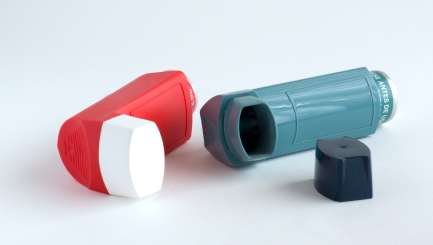What Do Young Adults Need in Order to Manage their Asthma?
 According to new research, young adults who feel stigma or poor acceptance of their condition take a dangerous approach to managing their asthma. The respiratory condition affects the wellbeing of 5.4million people in the UK, and asthma was responsible for 1,131 deaths in 2009. However, most of these deaths are preventable, and younger people need help to guard their wellbeing against this outcome.
According to new research, young adults who feel stigma or poor acceptance of their condition take a dangerous approach to managing their asthma. The respiratory condition affects the wellbeing of 5.4million people in the UK, and asthma was responsible for 1,131 deaths in 2009. However, most of these deaths are preventable, and younger people need help to guard their wellbeing against this outcome.
The recent study, published in the journal BMJ Open, tried to discover why young adults overuse their short-acting bronchodilators, or blue inhaler – a major marker of poor asthma control which is associated with an increased risk of hospital admission and death from asthma. The researchers discovered that preventative medication was too costly in parts of the UK, and those who used their blue inhaler often were more likely to express anger or resentment at their condition, as well as poor control of their asthma symptoms.
Richard Coombs has been a severe asthmatic since the age of four, and has been learning to deal with the condition that could kill him for more than 40 years. The designer carries a special asthma card with him in his wallet at all times, in case he has an attack and people don’t know what to do. ‘People can be a bit scared when they see someone struggling to breathe and don’t often know what is going on or how to deal with this,’ he said.
In the past 40 years, Richard has had over 100 A&E admissions, and in 2005 he experienced coronary and respiratory failure due to a sudden massive attack. ‘Thanks to a great paramedic giving me CPR I made it to the intensive care unit at Bodelwyddan Hospital where they “restarted” me,’ he said. ‘Over 1,200 people a year in the UK, with around 60 in Wales, aren’t that lucky.’
Richard, who takes steroids, three different tablets, two types of inhaler and uses a nebuliser every day to control his condition, added, ‘People understand what they think asthma is about – but it is not just a waft of the blue inhaler – when I have a big attack it frightens people. All that is needed is that people should talk gently to me, give me support, and let me have my reliever inhaler and call an ambulance.’
According to Emily Humphreys, Head of Policy and Public Affairs at Asthma UK, ‘Over-reliance on reliever asthma medicines instead of preventers puts people at greater risk of a potentially fatal asthma attack. It is absolutely crucial that healthcare professionals explain how medicines work, particularly when younger people are diagnosed with asthma, to ensure that they understand how to manage their condition.’


Comments are closed.